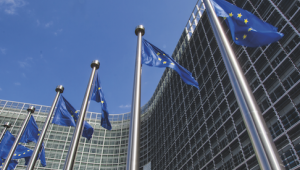The commission is responsible for about 1.7% of the EU budget and 6.8% of European Development Funds – a principle EU instrument for development aid – going to NGOs.
But the European Commission is not “sufficiently transparent” on how this money is spent by NGOs in its accounts, the European Court of Auditors highlighted in a report out today.
“NGOs often play an essential role in delivering [EU] aid,” Annemie Turtelboom, lead auditor of the report, said.
“But EU taxpayers need to know that their money is being paid over to properly defined organisations and that the commission will have to account for it fully.”
Between 2014 and 2017, the Commission planned to spend €11.3bn through NGOs in areas such as aid, the environment, and research and innovation, the auditors noted.
The ECA criticised the commission for not holding “uniform” data on how NGOs spend EU money and lacking data on projects funded indirectly by EU money.
There was a lack of transparency on how EU money was spent through UN bodies because the UN and commission had different reporting guidelines, the report said.
“The lack of information available [on money spend through UN bodies] hinders checks on costs,” the report said.
The EU watchdog examined six UN body contracts and found they were either not made publicly available or were only partially published.
The classification of NGO was also “unreliable”, the ECA found. NGOs are able to define themselves as a not-for-profit organisation and the commission does few checks to determine if this classification is justified, the auditors pointed out.
Turtelboom explained to PF International that ‘checks’, when done, included whether the organisation is a private company and if it were a not for profit.
Aside from this, the commission does not carry out any further verification of the organisation, she said.
She said: “What is already better is that there is now a labelling of NGOs in the commission’s accounting system.”
The commission introduced labelling in 2016, which identifies an entity in the accounting system as an NGO, rather than as ‘for-profit/not-for-profit’ and ‘private/public body’.
Turtelboom added: “That is already an improvement. But it is [still] not good enough. It would be better if the criteria were more clear and more detailed.”
The commission needed to be clearer with NGOs about what information was needed, she explained.
Another issue with ensuring transparency on EU aid money was the term ‘NGO’ was widely used and there was no generally accepted definition internationally, the report found. The commission and the UN define NGOs differently, the report noted.
Reliability of the information held on the commission’s accounting system for NGOs should improve, auditors concluded.
They recommended it adopt a uniform approach to publishing details of money given to NGOs and verify UN bodies’ publication of complete and accurate data on EU funding to NGOs.







